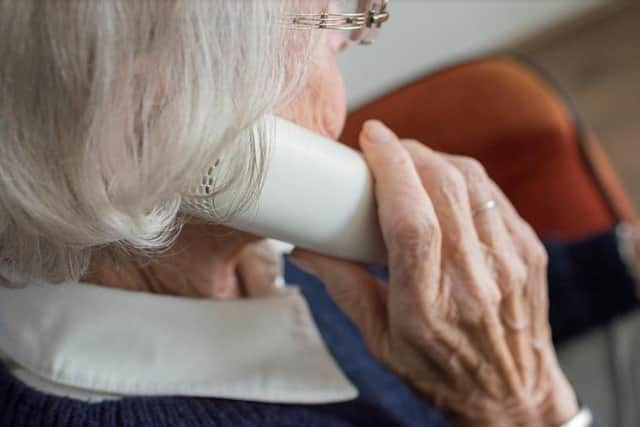Rotherham watchdog finds “lack of resources” to support hard of hearing patients access GP appointments
and live on Freeview channel 276
Healthwatch Rotherham says deaf and hard of hearing patients are finding telephone appointments offered by GPs “physically impossible”, as they rely on face-to-face communications.
An online survey which ran for three weeks during February and March received 227 responses, and examined how people booked GP appointments, appointment types offered and any accessibility issues faced.


Advertisement
Hide AdAdvertisement
Hide AdTheir report found that 90 per cent of patients reported being offered a telephone appointment, and face to face appointments “are still not the norm, despite restrictions easing and people expecting GP practices to return to pre-pandemic ways of working”.
“We had responses from the deaf community, who state that telephone appointments are physically impossible for them as they cannot hear and rely on seeing a face to communicate effectively.
“Additionally, those who are hard of hearing have found that there are a lack of BSL (British Sign Language) interpreters and a general lack of resources to support them at GP surgeries.”
The report found that 48 per cent of respondents are either “dissatisfied” or “very dissatisfied” with the choice of appointment offered to them – 90 per cent of respondents said they would prefer a face to face appointment.
Advertisement
Hide AdAdvertisement
Hide Ad“People are happy with a telephone appointment for something minor but many would appreciate a face to face appointment if they require a physical examination as this is more reassuring for them,” adds the report.
One respondent said they had been trying to get an appointment since Christmas at the time of the survey, and one added: “Phone at surgery is cut off before you get through, even if you have been waiting in a queue for over 10 minutes.”
Another responded raised accessibility issues, stating: “Being deaf and having to book via telephone is not accessible or acceptable when I cannot get an appointment online.
“In the surgery where masks are worn, I cannot hear my name being shouted – I have almost missed the appointments because of this, despite telling reception that I’d like my name on the display board.”
Advertisement
Hide AdAdvertisement
Hide AdThe report concludes that: “people want more flexibility and choice of how they access medical appointments.
“Large numbers of respondents wanted a letter or an automated telephone message on the practice’s telephone system to keep them updated of service change.”
Healthwatch makes a number of recommendations in the report, including more flexibility with appointment times and providing interpreters and face to face appointments for hard of hearing patients.
A spokesperson for NHS Rotherham CCG, said: “We welcome the Healthwatch report on access to GP practices in Rotherham and thank the 227 residents for their feedback.
Advertisement
Hide AdAdvertisement
Hide Ad“GP practices are exceptionally busy with high levels of demand for appointments as they continue to tackle the backlog from the Covid pandemic.
“It is acknowledged that this, alongside workforce capacity due to Covid, has had an impact on some patients trying to access appointments.
“Currently, over 65 per cent of appointments across all GP practices in Rotherham are face-to-face, with some appointments undertaken via telephone or video call where clinically appropriate.
“We are continually working with practices to help patients see the most appropriate clinician for their health need, which includes some improvements in areas highlighted within the report.”

